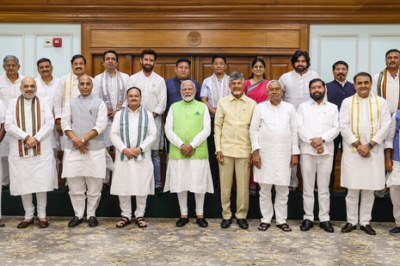
- Key Points:
- BJP’s rapid decision-making process contrasts with increasing internal and voter dissatisfaction.
- Recent by-election results reveal declining support for defectors within the party.
- Prominent BJP leaders express concerns about party strategies and leadership decisions.
Are BJP Leaders and Voters Signaling Trouble Ahead?
In recent weeks, the Bharatiya Janata Party (BJP) has faced a series of internal and external challenges, highlighted by the swift but contentious decision-making processes at the top. While the BJP’s leadership is known for making crucial decisions quickly—such as selecting new leaders or policy changes within minutes—this approach is now drawing criticism from within the party and its voter base.
A senior BJP functionary recently boasted about the party’s ability to make important decisions in just ten minutes. This rapid decision-making has been a hallmark of the BJP, with key decisions about chief minister replacements, policy clearances, and even candidate selections for elections often made in record time. Prime Minister Narendra Modi’s decisive leadership style, which includes actions like demonetization and surgical strikes, has been both praised and scrutinized.
However, the results of 13 recent Assembly by-elections across seven states have signaled growing discontent among BJP supporters. The party won only two out of the 13 seats, a significant drop that can’t be ignored. These results suggest that voters are becoming increasingly wary of defectors—politicians who switch allegiance to the BJP expecting rewards and legitimacy.
For instance, in Himachal Pradesh, six Congress MLAs who defected to the BJP and contested in the bypolls saw four of them lose. Similarly, two out of three Independent MLAs who joined the BJP were defeated in the by-elections. This shift indicates that voters are no longer inclined to support defectors simply because they align with Modi’s BJP.
In Himachal’s Hamirpur constituency, Independent candidate Ashish Sharma, who won with 47% of the vote in 2022, saw his vote share increase only slightly to 51% after joining the BJP. Conversely, the Congress candidate doubled their vote share from 23% to over 48%, suggesting a shift in voter loyalty. Similar trends were observed in other constituencies, with defectors struggling to secure wins despite their new BJP affiliation.
These electoral outcomes underscore a deeper message: BJP cadres and loyal voters are starting to rebel against the party’s strategy of rewarding defectors. This sentiment is echoed by several senior BJP leaders who have voiced their concerns publicly. Union Minister Nitin Gadkari recently reminded party members of the BJP’s foundational principles and cautioned against repeating the Congress’s mistakes. Former Himachal CM Prem Kumar Dhumal criticized the party’s hasty decisions regarding the induction of defectors, suggesting that these moves were ill-considered.
In Rajasthan, minister Kirorilal Meena resigned after highlighting governance issues, and former West Bengal BJP chief Dilip Ghosh criticized the party’s strategy of relocating established leaders. Uttar Pradesh MLA Ramesh Chandra Mishra also raised alarms about the party’s position in the state, urging major decisions to rectify the situation.
These discordant voices from across the BJP indicate a growing sense of urgency and dissatisfaction. While the party leadership continues to project confidence, the underlying messages from voters, cadres, and senior leaders suggest that all is not well within the BJP. The party must address these concerns to maintain its support base and avoid further electoral setbacks.









































Leave a Reply